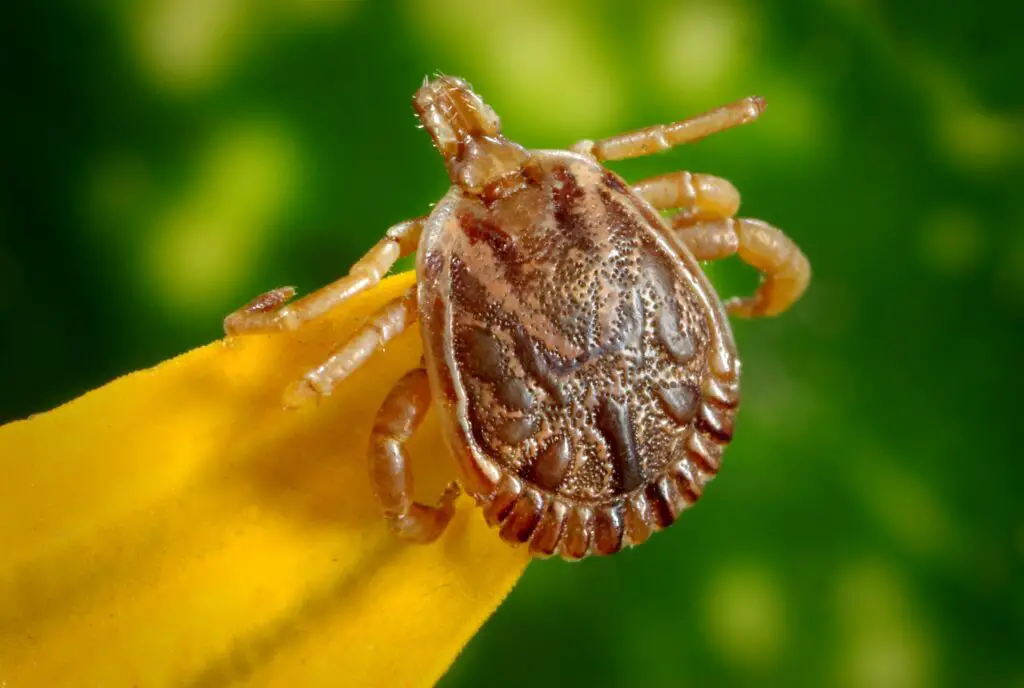If you spend a lot of time outside, then you have most likely encountered a tick at some point in your life, if not many of them! The unfortunate thing about ticks is that it’s painless when they bite, so you will not feel them when they anchor onto your skin. After you’ve spent a significant amount of time outdoors, it’s always a great idea to check yourself, children, and pets for ticks, especially from March to November when they are most likely to be out.
Ticks will eventually fall off on their own after they are full but this can take several days or up to a week to happen. During that period of time, the tick may have ample time to spread any diseases that it may have and for this reason, it is always important to check for ticks and properly remove them as soon as you find them.

Where do ticks come from?
You may be wondering when you are most at risk of encountering ticks and what type of areas they are most prevalent in. Typically you want to be most vigilant about checking for ticks when you have been in areas of tall grass, forest, gardens, shrubs, or any unkempt areas.
That is certainly not to say they cannot be present in the most well manicured lawns, but they usually prefer warm, moist areas that provide shelter like bushes, undergrowth, and tall grassy spots. Dogs and cats usually pick up ticks by walking through tall grass or other overgrown areas.
Likewise, if you live in an area with a lot of wildlife that passes through or close to your yard, you will want to be very mindful of ticks anytime you are outside. Even if your lawn is very well kept, the wildlife that passes through is very likely to leave ticks behind who will be waiting for a new host. Deer and birds are frequent visitors to our yard and are both known to frequently carry ticks.
How do you know if you’ve been bitten by a tick?
If a tick falls off on its own, how do you know if you have been bitten? Well, there are a few signs that may indicate you have been bitten by a tick. First, you may notice some redness and itching in the area. The spot where the bite is on your skin may even feel like a little hard bump and may feel a little sore.
You can use a little rubbing alcohol to clean the spot and usually this will be enough and the bite will eventually go away on its own. There are, however, certain symptoms that you should be aware of and look out for when you have had a tick bite.
Symptoms to look for after a tick bite:
- Fever
- Flu-like symptoms
- Bullseye rash
- Pain
- Blistering
- Muscle and joint pain
How to prevent ticks?
If you are going to be hiking, camping, or in an area where you expect ticks you should use a bug repellent that contains DEET as an active ingredient. This is the most effective way to keep ticks off of you.
There are also some other ways that you can protect yourself from tick bites including tucking your pant legs into your socks and wearing light colored clothing that will allow you to see a tick crawling on you.
Ultimately, there is no sure way to prevent ticks completely. Wearing a DEET spray and proper clothing are great ways to try and prevent them, but it is always wise to check clothing and your body for ticks anytime you are outside in an area where ticks may be prevalent.
Do ticks wash off in the shower?
Ticks can wash off in the shower if you take one very soon after coming from outdoors. If the tick is still unattached it is likely that it will rinse off in the shower after thoroughly washing. If you wait long enough that the tick has time to attach, then it will not wash off in the shower, but you may at least find one that has attached to you and be able to properly remove it.
Showering and performing a full body check in combination is a great way to find any ticks that may be on you and is always a good idea after leaving the woods or area with tall grass or brush. The sooner you find the tick, the less chance there is for it to spread any disease to you.
Bottom Line
If you are like me you often wonder what will happen if you don’t find a tick that has crawled onto you. Now we know the answer is that they will eventually fall off on their own once they get full.
However, we also know that the longer a tick remains attached to you, the more chance there is of them spreading a disease that they may be carrying. In most cases though, the ticket must be attached for a significant amount of time, around 36 to 48 hours before something like Lyme disease can be transmitted.
Don’t be too worried if you do not find a tick right away, but it is a good idea to do a thorough check within the first 24 hours of being in an area where ticks could be present. Take a shower and also have someone else check your hair as this is a place they love to hide.
As always if you experience any of the symptoms mentioned above, even if you never found a tick on your body, seek medical attention right away to ensure you receive proper treatment.
